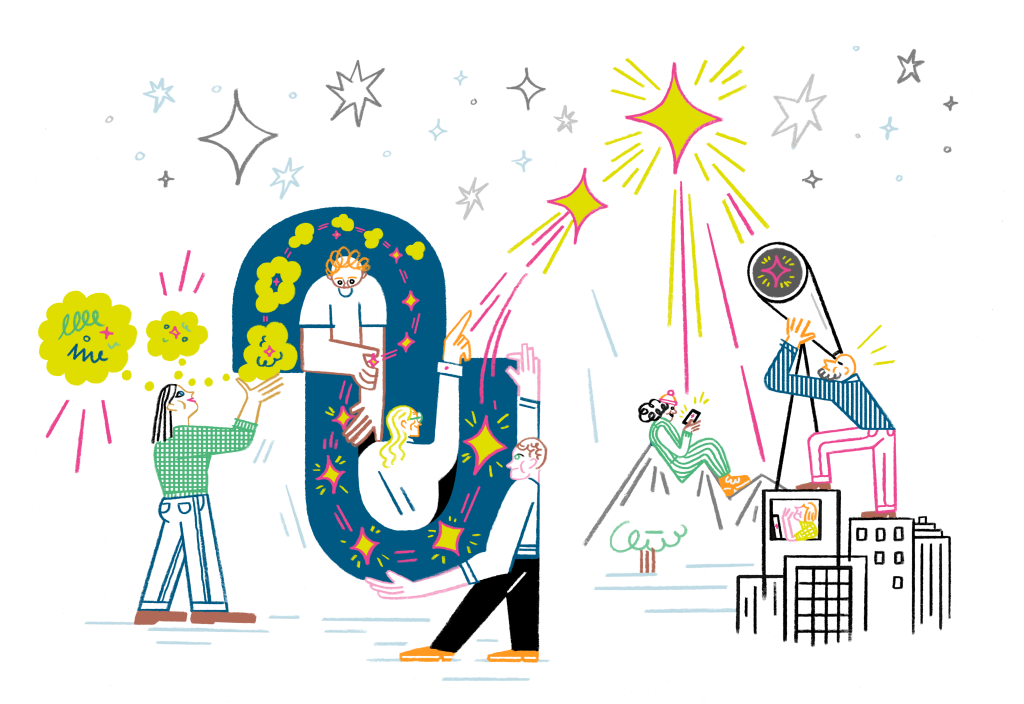
Access to knowledge is a matter of equity
The Wikimedia Accelerator program UNLOCK calls for new ideas and projects that break down social and technical barriers preventing people from both accessing and contributing to free knowledge. Applications are open from April 5th until May 29th.
The UNLOCK program supports innovative projects and the teams behind them with tailored coaching, access to an international network of experts, peer-to-peer exchange and a scholarship. We accelerate your ideas!
What kind of ideas get supported?
In alignment with recommendation 9 “Innovate in free knowledge” of the Movement Strategy, we look for projects (ideally at an early stage from idea sketch-level to a ready / almost ready prototype) that address knowledge equity in the following areas:
- New technologies, tools, models of governance or similar that support more diverse modes and formats of knowledge (e.g. audio, visual, video, geospatial, etc.). With your ideas we can create an environment where new and/ or underrepresented communities can devise their own technologies, systems, social structures, policies and governance.
- Alternative practices and models that create more opportunities for everyone to participate in free knowledge projects; new concepts for overall fairer conditions, greater incentives and fairer compensation for the contribution to free knowledge; your idea for a more inclusive representation of the diverse knowledge of our world; or for building creative commons standards as real alternatives to existing closed-source business models.
Who is the program for?
We are looking for active Wikimedians as well as free knowledge enthusiasts, developers, designers and activists from outside the Wikimedia movement. For this year’s edition, we will pilot a regionally focused program as Wikimedia Deutschland and Wikimedia Serbia have joined forces to promote and strengthen cross-regional and cross-affiliate collaboration. Besides, we also teamed up with Impact Hub Belgrade – an organization from the innovation ecosystem. This means that applications are open to project teams (of a minimum of two and no more than five members) from the following countries: Albania, Austria, Bosnia-Herzegovina, Germany, Kosovo, Montenegro, North Macedonia as well as Serbia and Switzerland. The program language is English in order to enable exchange and create synergies among the cross-regional project teams. UNLOCK is designed to work completely virtually.
Applications are open from April 5th until May 29th. Join the UNLOCK Accelerator to turn your idea into a working prototype. Head over to the UNLOCK program page for details (incl. eligibility criteria, program timeline, application form and more).
You want to apply?
Great – we look forward to your ideas! If you require further assistance with your application or if you have an idea but are not sure whether or not to apply, feel free to reach out to the organizing team behind the program via Email: unlock@wikimedia.de
You know people who would be interested in this program?
Sharing is caring – Help us spread the word about the call in your network and community. You can find us on LinkedIn, and/or Twitter and simply share our posts. Ideally with a few personal words – a brief “Apply now” is enough! Besides, we created a one pager to be shared, which contains all important information.
And finally, take a look at the video below that captures former participants, coaches and the organizing team talking about their experiences, motivations and the big picture of this innovation-driving program UNLOCK.

Can you help us translate this article?
In order for this article to reach as many people as possible we would like your help. Can you translate this article to get the message out?
Start translation